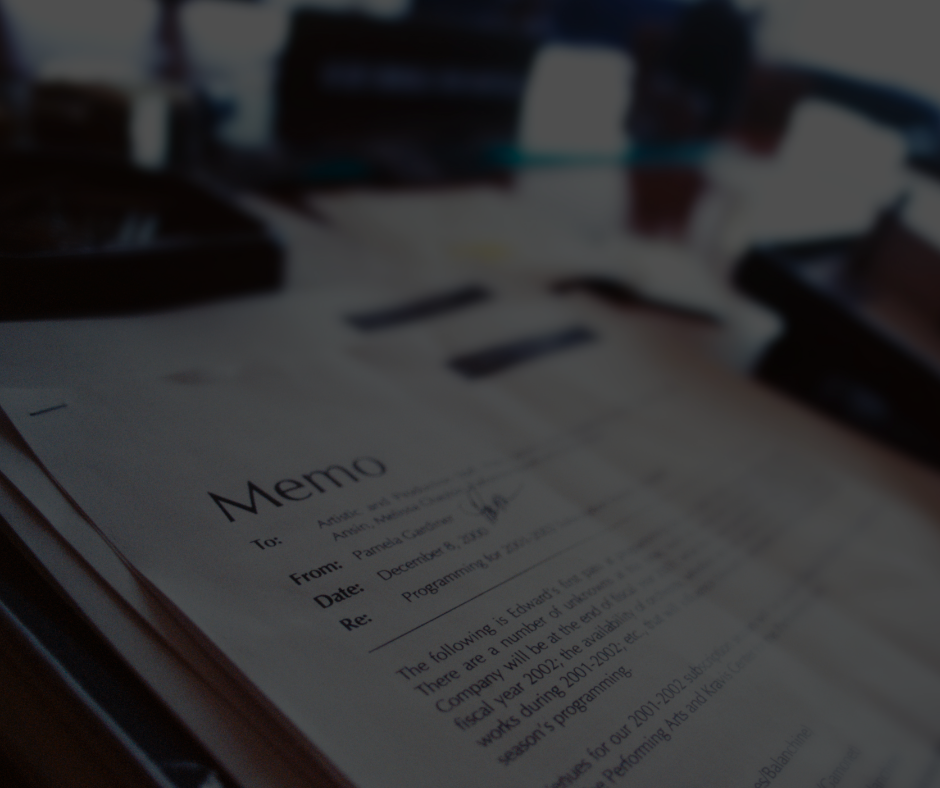What is a focus group memo?
After every focus group, a memo is generated to consolidate feedback into one location and preserve the thoughts, feelings and takeaways while they are fresh in your mind.
What should a focus group memo contain?
A thorough memo contains the full focus group transcript, presentation style, presentation materials, participant demographics, participant votes and overall feedback/takeaways from the lawyers or moderators.
Why do a focus group memo?
The goal is to capture your thoughts, feelings, feedback and takeaways when they are freshest in your mind. Details such as body language and context are sharpest right after the focus group, and the recall will naturally fade as time passes. A memo preserves those crucial first impressions. If you re-watch the focus group, you will inherently learn new things from the second viewing, but you won’t be able to re-create your initial impressions.
When do you complete the memo?
Though it can be time-consuming, the memo should be completed immediately after the focus group. You should include impressions, body language, participant responses, and overall takeaways. The actual transcript can be inserted in the days following. I suggest using an online transcription service like Rev.com or Tumi.com to save the time and expense of in-house transcription.
What are some benefits of a focus group memo?
The memo can be used to help plan the next focus group and avoid running the same presentation twice.
It can also save time later when you are preparing for mediation, jury selection and trial, as you won’t have to watch the entire focus group video again. Instead, you can easily locate the key issues from the focus group and re-watch only those specific parts, or merely review your thoughts, feelings and takeaways after seeing the transcript.
If you are running multiple focus groups, you can use your memos to quickly consolidate data on the types of participants that always reacted positively to your case or that always reacted negatively.
How can the Larrick Law Firm help with your focus group memo?
We offer four types of focus groups. For lawyers that choose our dedicated focus group offering, we generate a detailed focus group memo that captures, not only the work done in the focus group, but also the insights and intricacies gleaned from it. Following the style described above, we include a transcript, votes, participant demographics, first impressions, insights, and more. As a bonus for dedicated focus groups, Elizabeth Larrick immediately roundtables afterwards with the lawyers, discussing the focus group, their notes and their evaluations. Each lawyer, including Elizabeth as the moderator, will have heard and seen things differently. In this discussion, Elizabeth helps the team instantly hash out key considerations, such as why a certain person said something and what it means for the case. Elizabeth is able to put the takeaways from each lawyers’ perspective into the memo and create a dynamic piece of case preparation that can be assessed over and over again.
Elizabeth is here with up-to-the-minute best practices to fully adapt to virtual jury selection, virtual depositions, presentations, and more. Have questions about how to work smarter in virtual courtrooms? Schedule a strategy call today with Larrick Law Firm.








